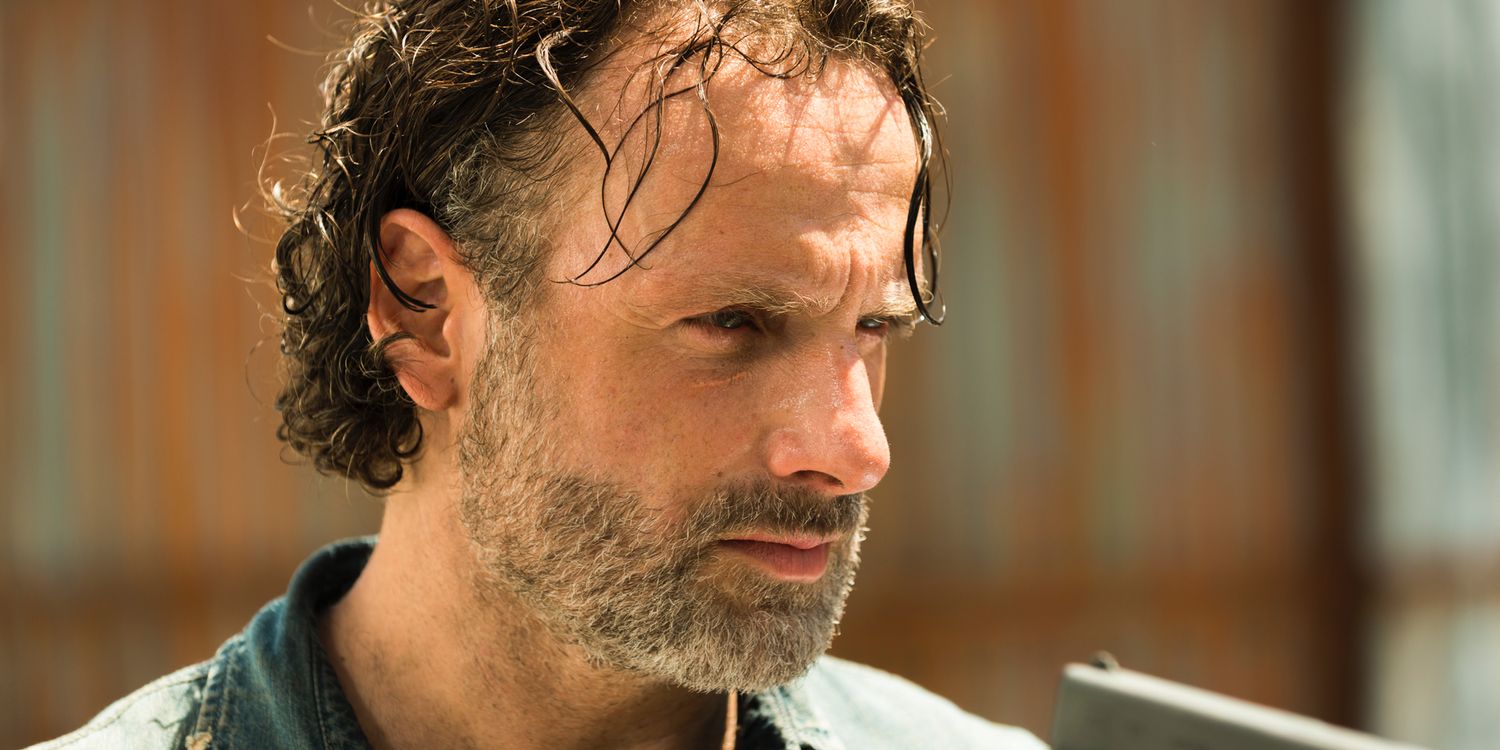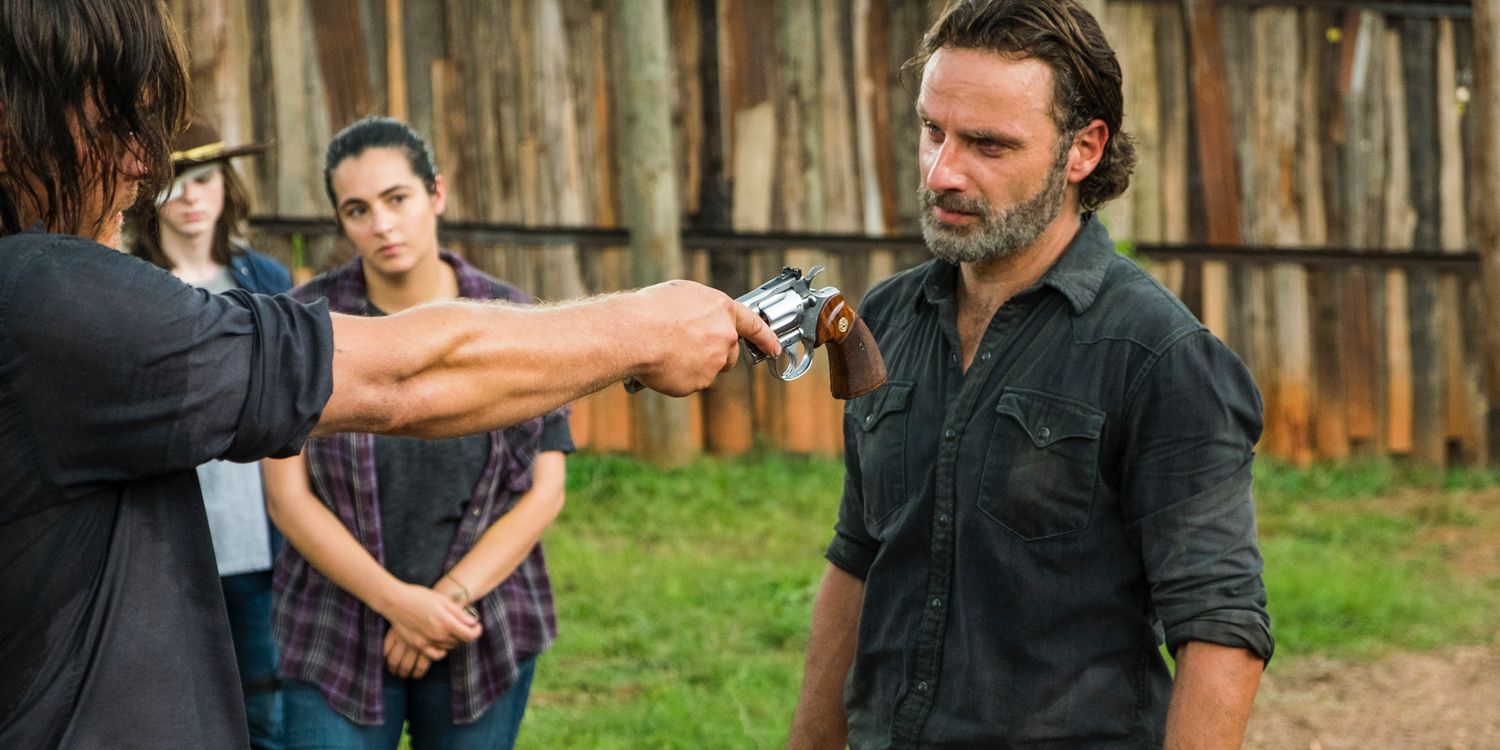Throughout the first half of The Walking Dead season 7, Rick found himself in the difficult position of no longer being the prototypical post-apocalyptic alpha male. Usurping Rick's station was Negan, the red-scarf-wearing, bat-loving bully who never told a joke he didn't think was hilarious. The first eight episodes of the season took great pleasure in watching Negan emasculate Rick and subjugate his community. But a turnaround is on the way, after the midseason finale found Negan's cruelty and penchant for murder to have brought the former sheriff to a tipping point as it were, and now he's ready to declare war on the Saviors.
As if 'Hearts Still Beating' didn't underline the prospect of all-out war enough, AMC released a promo for the back half of season 7 that really sent the message home by turning 'Rise Up' into the unofficial tagline for series when it returns. From what is shown, The Walking Dead seems to make good on showrunner Scott M. Gimple's promise to bring a different tone to the latter portion of the season, and one that will seemingly feature more action to boot. But after eight episodes of watching Rick cower as Negan took what he wanted, and later explain to the others that life under Negan's rule is now the law of the land, what ultimately brought Rick to the conclusion that war was his only choice?
Participating in a midseason postmortem with Deadline, executive producer Gale Anne Hurd offered up a few details explaining Rick's attitude adjustment and why he would risk so much going up against a seemingly unstoppable foe.
"... with Michonne’s pep talk and with Daryl back, Rick is finding his mojo again. I don’t think they’re going to be willing servants of Negan’s anymore."
During the interview, Hurd also explained what role the deaths of Spencer and Oliva played in the decision to take the offensive with Negan, and whether or not Spencer's disembowelment really moved the needle in terms of Ricks rage gage. Hurd said:
"It really is more about how it affects the remaining group. With Spencer that’s a horrific death but everyone knew that he was pretty untrustworthy. That he was plotting against Rick. He was vocal in that with Father Gabriel. So he’s not someone that was probably going to motivate anyone to do anything because his death seemed almost deserved, whereas Olivia was completely blameless, completely innocent. In Negan’s world he just says kill somebody and you never know whose number is going to come up. That’s not a world that the rest of our Survivors are going to want to continue to live in."
In terms of Hurd's earlier comment, there really is something charming to the way the show plays up Rick and Daryl's bond. Considering the cast is thinned out and replenished on a regular basis, and Glenn got the boot (or the bat, rather) in the season premiere, the Rick/Daryl bromance is one of the few relationships that can be traced back to the beginning of the series. As such, Hurd's assessment that waiting until Daryl was back safe and sound played a large role in Rick's decision to bring back his warlike self makes sense. It may not justify eight weeks of plodding story, but it checks out as far as character motivation goes.
At any rate, war is definitely on the horizon when The Walking Dead returns in 2017. As with any conflict on the series, expect more characters to wind up as casualties in the war against Negan. That sense of portend could help raise the stakes. After all, with Spencer out of the way, can Rick really afford to lose anyone else? Fans will find out when the show returns.
-
The Walking Dead season 7 returns on Sunday, February 12 @9pm on AMC.
Source: Deadline


